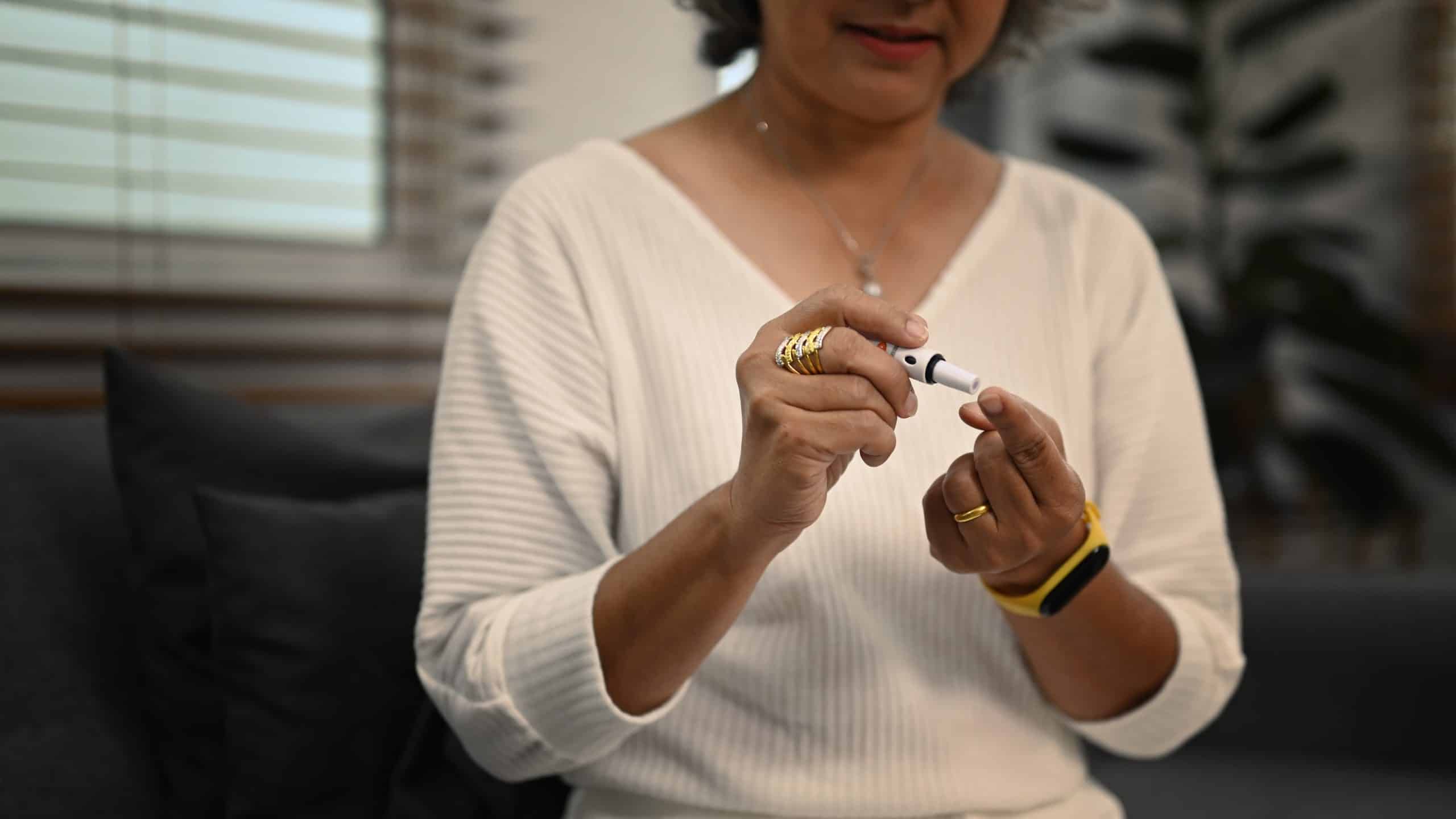
Diabetes and Coronavirus
According to studies, about 25% of people admitted to hospitals with serious COVID-19 infections had diabetes. It was found that patients who have diabetes have a mortality rate of 7.3%, which is three times higher than the overall population.
Diabetic patients are more likely to develop severe symptoms and die from the infection. The risk of severe coronavirus infection increases if you also have cardiovascular or respiratory disease. The viral infection could also pose a greater risk for diabetes complications like diabetic ketoacidosis (DKA). DKA occurs when the blood contains elevated levels of acids called ketones.
Why People With Diabetes Are More Vulnerable to COVID-19
There are two reasons why people with diabetes are more vulnerable to COVID-19:
- First, the high blood sugar level weakens the immune system, making it less capable of fighting the virus. It can also lead to a longer recovery period.
- Lastly, the elevated blood sugar level enables the virus to thrive more compared to people with normal blood sugar levels.
Do people with diabetes have a higher chance of severe complications from COVID-19?
Yes, they are more likely to have serious to severe complications from COVID-19. However, people with diabetes are generally more likely to have more serious symptoms and complications when infected with any infection or virus.
If you have well-controlled diabetes, the chances of being really ill from COVID-19 are expected to be lower. In addition to diabetes, having heart disease or other complications can increase your risk of being severely ill from COVID-19 or other viral infections, because having more than one disorder makes it more difficult for your body to combat the infection. In people with diabetes, viral infections may cause inflammation or internal swelling. This can also be exacerbated by blood sugar levels that are higher than normal, and the resulting inflammation can lead to more serious complications.
Are people with diabetes more likely to get COVID-19?
According to the American Diabetes Association, there is not enough data to show whether people with diabetes are more likely to get COVID-19 than the general population. People with diabetes have a higher risk of having more serious complications if they contract the infection. Furthermore, the more health problems a person has (for example, respiratory and heart disease), the higher their risk of COVID-19-related severe complications. We are hoping that the death rate will go down with the COVID-19 vaccines and improvement in detecting and treating the virus.
COVID-19 vaccination for Diabetic People
Diabetic individuals should be prioritized in vaccination programs due to their increased risk of poor health outcomes. If you have diabetes, get vaccinated at the earliest opportunity possible.
If you are a resident of Bermuda, people with diabetes are being prioritized for the first batch of the vaccine. You can register for vaccination by completing the online registration form or by calling 444-2498.
COVID-19 Diabetes Plan Bermuda
In case you get quarantined, the social distancing, medical facility, and local government rules may make it harder for you to get the supplies you need. Here are the things you need to prepare for emergencies:
1. Enough food, especially healthy carbs good for two weeks
2. In case of hypoglycemia (low blood sugar), prepare simple carbs like candies, fruit juice, or sugar-sweetened soda in case your blood sugar dips
3. The maximum amount of refill of insulin and your other medications
4. Extra glucagon and ketone strips
5. Phone numbers for your doctors and health insurance company
For medical consultations, you no longer have to go to your doctor’s office too with the help of telehealth. Telehealth visits are also covered by Medicare and several private insurance providers. So instead of coming to their clinic, you can ask your doctor questions via video chat or phone. During the consultation, make sure to ask the following questions:
- How often you should check your blood sugar and ketones
- What cold and flu remedies are safe for you to take
- How to adjust your diabetes medicines if you’re sick
What to Do if You Get Sick
Stay at home if you begin to feel sick. You should also check your blood sugar more often than normal. COVID-19 may suppress your appetite and encourage you to eat less, which affects your blood sugar levels. Always keep a bottle of water with you and keep yourself hydrated.
Some over-the-counter medications may cause blood sugar levels to rise or fall. Aspirin or ibuprofen in high doses will reduce blood sugar levels. On a continuous glucose monitor, acetaminophen can trigger falsely high readings. Many liquid cough and cold remedies contain a lot of sugar, which can cause blood sugar levels to rise too. So, always consult your doctor or first before taking them.
Get the Right Program
Take control of your diabetes with our Diabetes Reversal Program. You’ll learn how to effectively protect yourself from COVID-19 with the full help and support of our doctors. Schedule a consultation with us today if you have COVID-19 symptoms (a dry cough, fever, or shortness of breath). You can also get your blood sugar and ketone readings checked here at Premier Health and Wellness Center of Bermuda.
You don’t have to fight diabetes alone. Get the right program today by calling us at 441-292-5111. Learn more about our Diabetes Reversal Program by visiting our website.
